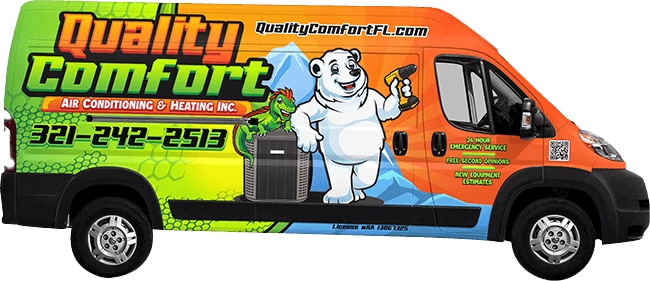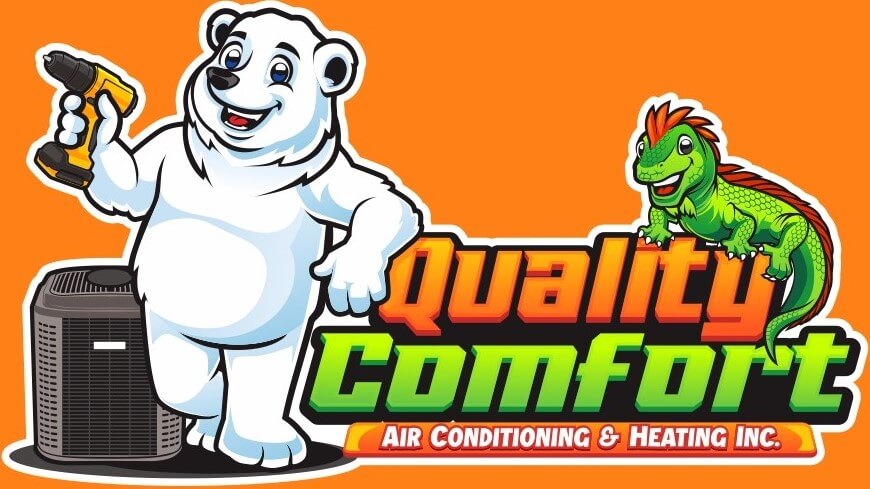


Discover why your air conditioning breaker keeps tripping with our expert guide. Learn common causes, troubleshooting tips, and when to call Quality Comfort Air Conditioning and Heating Inc. for professional repair.
As the summer heat intensifies, the last thing you want is for your air conditioning (AC) system to fail you. Yet, a common issue many homeowners face is the AC breaker tripping and not resetting. This not only disrupts your comfort but can also signal underlying problems with your AC system that require immediate attention. This article explores the reasons behind this frustrating occurrence and provides a step-by-step guide on diagnosing and resolving the issue. Additionally, we'll discuss when it's time to call in the experts from Quality Comfort Air Conditioning and Heating Inc. for professional repair.
Circuit breakers are designed to protect your home from electrical overloads and short circuits by tripping, thus cutting off the power. When it comes to your air conditioning system, several factors can cause the breaker to trip. Understanding these reasons is the first step toward solving the problem.
Before calling for professional help, there are a few things you can check:
If after checking the above, your AC's breaker continues to trip, it may be time to call in the professionals at Quality Comfort Air Conditioning and Heating Inc. We specialize in diagnosing and fixing complex AC issues, ensuring your system operates efficiently and safely.
Regular maintenance, including cleaning filters, checking refrigerant levels, and ensuring your electrical system can handle your AC's power requirements, can prevent future issues. Additionally, scheduling annual inspections with Quality Comfort Air Conditioning and Heating Inc. can help catch potential problems before they lead to a tripped breaker.
A tripped AC breaker is more than a mere inconvenience; it's a warning sign of potential issues within your system. By understanding the common causes and knowing what to check, you can often troubleshoot minor problems yourself. However, for complex issues or when in doubt, it's best to call on the expertise of Quality Comfort Air Conditioning and Heating Inc. Ensuring your AC runs smoothly not only keeps you cool during the summer but also protects your home from potential electrical hazards.
Don't let a tripped breaker disrupt your comfort. Contact Quality Comfort Air Conditioning and Heating Inc. today for expert AC repair and maintenance services. Our team is ready to ensure your air conditioning system operates at its best, providing you with peace of mind and a cool, comfortable home.
Why is regular AC maintenance important?
Regular AC maintenance is vital for several reasons. First, it ensures your system runs as efficiently as possible, saving you money on energy bills. Second, it can significantly extend the lifespan of your AC unit by preventing wear and tear on its components. Third, regular maintenance helps catch and fix minor issues before they escalate into major problems that could cause your AC to break down or lead to a tripped breaker. Lastly, it ensures the air quality in your home remains high by keeping filters and coils clean, which can reduce allergens and dust in your air.
Yes, a tripped breaker can be a symptom of underlying issues that, if not addressed, could damage your AC system. While the breaker tripping itself is a protective measure to prevent electrical fires or damage, the cause of the tripping—such as a short circuit, overloaded circuit, or a failing compressor—can harm your AC unit if ignored. Continuous tripping without resolving the root cause can lead to more significant, more expensive repairs or even require the replacement of the AC unit.
It's recommended to replace your air filters every 30 to 90 days, depending on usage and the type of filter. Homes with minimal foot traffic (single occupants without pets or allergies) might be fine with a 90-day cycle. Families with pets or people with allergies might need to replace filters more frequently. It's also important to consider the air quality in your area and the time of year, as periods of high usage might necessitate more frequent changes.
Signs that your AC's capacitor may need replacement include:
Yes, it's generally safe to reset a tripped breaker yourself. However, we would not recommend it. The breaker tripped for a reason! It's important to understand why the breaker tripped in the first place. If it's a one-off occurrence, it might have been a simple overload or a temporary issue. However, if the breaker trips repeatedly, this indicates a more serious problem that needs addressing. Before resetting the breaker, disconnect any additional appliances that might have caused the overload. If you're unsure or the breaker keeps tripping, it's best to consult a professional.
Signs that your AC might be overloading the circuit include the breaker tripping frequently when the AC is running, lights dimming in your home when the AC starts up, or other appliances losing power momentarily. If you suspect your AC is overloading the circuit, it may be due to an inadequate electrical supply for the unit's demand, or the unit itself might be drawing too much power due to a malfunction. It's essential to have a professional evaluate your system to determine if a dedicated circuit is required or if there are issues within the AC unit that need addressing.